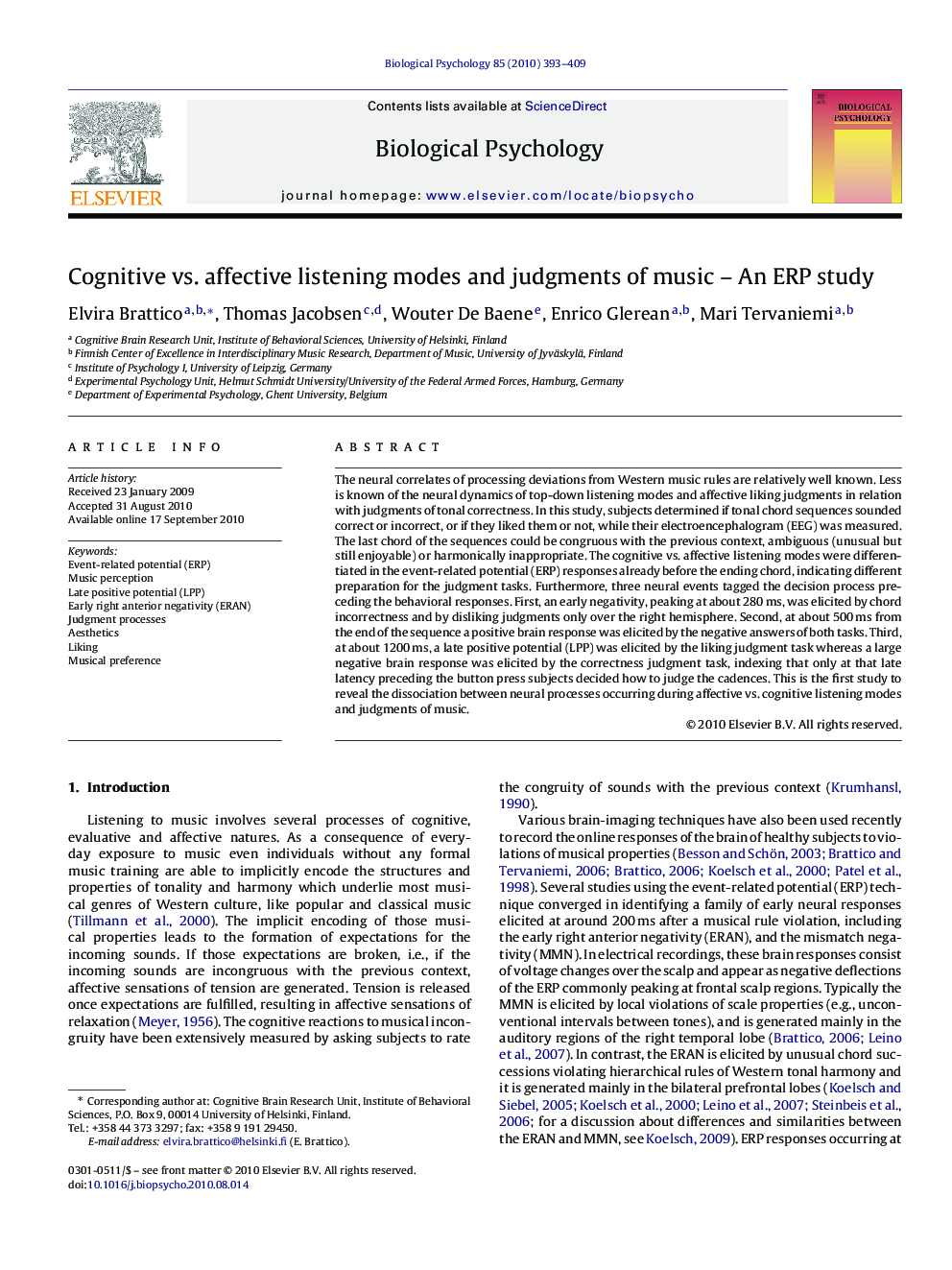| کد مقاله | کد نشریه | سال انتشار | مقاله انگلیسی | نسخه تمام متن |
|---|---|---|---|---|
| 921332 | 920769 | 2010 | 17 صفحه PDF | دانلود رایگان |

The neural correlates of processing deviations from Western music rules are relatively well known. Less is known of the neural dynamics of top-down listening modes and affective liking judgments in relation with judgments of tonal correctness. In this study, subjects determined if tonal chord sequences sounded correct or incorrect, or if they liked them or not, while their electroencephalogram (EEG) was measured. The last chord of the sequences could be congruous with the previous context, ambiguous (unusual but still enjoyable) or harmonically inappropriate. The cognitive vs. affective listening modes were differentiated in the event-related potential (ERP) responses already before the ending chord, indicating different preparation for the judgment tasks. Furthermore, three neural events tagged the decision process preceding the behavioral responses. First, an early negativity, peaking at about 280 ms, was elicited by chord incorrectness and by disliking judgments only over the right hemisphere. Second, at about 500 ms from the end of the sequence a positive brain response was elicited by the negative answers of both tasks. Third, at about 1200 ms, a late positive potential (LPP) was elicited by the liking judgment task whereas a large negative brain response was elicited by the correctness judgment task, indexing that only at that late latency preceding the button press subjects decided how to judge the cadences. This is the first study to reveal the dissociation between neural processes occurring during affective vs. cognitive listening modes and judgments of music.
Research highlights▶ Enhanced negative waves preceding correctness judgments. ▶ After ending chord early negative and late positive brain waves to negative judgments. ▶ At very late latencies neural processes underlying liking and correctness judgments diverged. ▶ Affective strategies were employed for liking decisions. ▶ Memory integration mechanisms lead to correctness decisions.
Journal: Biological Psychology - Volume 85, Issue 3, December 2010, Pages 393–409